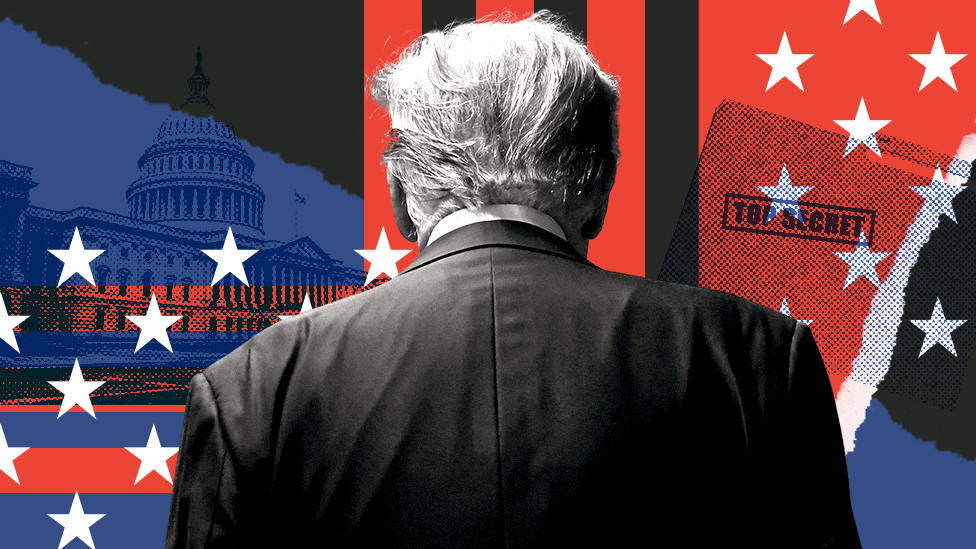What to know about Trump's hush-money trial
- Published
Watch: Our New York correspondent sets out what's at stake in Trump's unprecedented trial?
The prosecution and defence have rested their cases in Donald Trump's first criminal trial, and jurors will begin deliberating soon.
Mr Trump, 77, is the first former US president to be tried for a crime, and is charged with 34 counts of fraud, related to hush-money that was paid to adult-film actress Stormy Daniels.
Prosecutors allege he concealed the payoff and another crime. He has pleaded not guilty, arguing the allegations he faces are not criminal.
The Manhattan case has frequently taken the presumptive Republican nominee for president off the campaign trail for several weeks during the trial.
He repeatedly has alleged without evidence that Democrats orchestrated the trial to negatively affect his presidential bid.
Here's everything we know about the trial, which has gone on for six weeks.
What is it all about?
Ms Daniels alleges that she had sex with Mr Trump in 2006 - something he denies - and that she was paid money to stay quiet about it in the lead-up to the 2016 election, which Mr Trump won.
The trial centres on a reimbursement Mr Trump made to his former personal lawyer and "fixer", Michael Cohen.
Cohen, 57, claimed on the witness stand that he paid Ms Daniels $130,000 (£104,000) in exchange for her silence about her alleged tryst with Mr Trump. He claimed that he did so at Mr Trump's direction and with his assurances that he would be repaid.
Hush-money payments are not illegal. But the Manhattan District Attorney's Office alleges that Mr Trump committed a crime by improperly recording the money with which he reimbursed Cohen as legal expenses. They further accuse him of falsifying the business records to conceal a second crime - a violation of state election law.
In total, the former president is accused of 34 counts of falsifying business records in the first degree.
Did Trump attend and testify?
Mr Trump previously vowed to be in court by day and campaign by night, and he has sat at the defence table each and every day that court has been in session.
As a criminal defendant, he was legally required to be there and the trial judge, Justice Juan Merchan, threatened to issue arrest warrants for absences.
Mr Trump did ask to skip court for his son's high school graduation on 17 May. The judge granted the request, canceling the trial for the day.
This is a distinct change for Mr Trump. The former president showed up sporadically at his pair of recently concluded civil trials, often entering and leaving the courtroom as he pleased.
Mr Trump did not testify during the criminal trial, though he has signaled at different times that he might. He spoke to the media each day before and after court, and often alleged that Democrats and others had orchestrated the criminal case to damage his chances in the upcoming election. He did not provide evidence to support his claim.
The ex-president already has crushed the competition in the Republican primary, and is now the presumptive Republican nominee. He only has the general election in November to worry about from here.
But the trial has served as a distraction from his campaign and conflicted with his challenge of President Joe Biden. It also siphoned off much-needed campaign funds to support his legal defence.
To make up for the lost time on the campaign trail, Trump has brought high-profile Republicans to the trial - including House Speaker Mike Johnson - to bring attention and have surrogates speak on his behalf.
What has the trial looked like?
Manhattan Supreme Court Justice Juan Merchan is no stranger to Mr Trump or his orbit. The judge oversaw a tax fraud trial against the Trump Organization last year, and he has more than 16 years on the bench. But the first criminal trial of a former US president is certainly his highest-profile case yet.
Mr Trump has repeatedly said the judge "hates" him and called for him to step aside, a move Justice Merchan rejected before and during the trial.
This case already has veered twice from a typical, lower-profile proceeding.
Justice Merchan issued a sweeping gag order that bars the former president from talking about jurors, witnesses, members of the prosecution team and the judge's family. Mr Trump can speak about the judge and Manhattan District Attorney Alvin Bragg.
And the prosecution refused to share the names of its witnesses with defence attorneys, saying Mr Trump might tweet about them. Usually, prosecutors will tell the other side who they plan to call as a courtesy.
The former president hired a coterie of lawyers for his various cases. Representing him here is a team led by Susan Necheles and Todd Blanche.
District Attorney Bragg, the first person to indict Mr Trump, assembled a team of eight seasoned litigators for the prosecution.
Cohen served as the prosecution's star witness. He faced an intense cross-examination over his chequered past and his public criticism of his former boss - Mr Trump.
Watch: How Trump and Cohen's friendship soured over the years
How did jury selection work?
The jury was selected at the start of the weeks-long trial, and it took far less time than expected. Ultimately - as required by New York law for felony trials - 12 jurors and six alternates were chosen.
Prospective jurors answered a wide range of questions, including where they get their news and whether they have ever attended a Trump rally.
They also were asked if they have read any of Mr Trump's books or if they have listened to anything from Mr Cohen.
Jury selection was complex, Mr Rahmani said, because "everyone knows who Donald Trump is. Everyone has an opinion about him".
"People are not coming into the courtroom with a blank slate," Mr Rahmani said.
Justice Merchan, however, imposed a time limit to ask questions. Each side also was limited to 10 challenges without providing cause. The Trump team ran out of challenges during the process.
Two jurors who had been picked were ultimately dismissed by Judge Merchan. One was dismissed when she said she realised she could no longer be impartial after friends and family, having gleaned from media reports that she was chosen for the panel, bombarded her with her messages.
Another was found to have lied about having no criminal history.
Three potential alternate jurors were excused after saying the trial was causing them stress and anxiety.
Was the trial televised?
New York is one of only three jurisdictions in the country that bans nearly all audio and visual coverage during trials, although it made a brief exception for audio during the pandemic.
Judges have discretion over letting cameras into their courtrooms, and we caught brief glimpses from Mr Trump's civil fraud trial on most days.
At the start of the day in this trial, photographers are allowed into the courtroom to take photos of the defendant, and a pool of camera operators maintains a presence in the hall - where Mr Trump holds his impromptu press conferences.
Donald Trump Jr: 'I should have worn make-up'
But Justice Merchan has so far not reversed course on television cameras. There is an overflow room inside the courthouse where reporters and members of the public can watch the proceedings.
That means - despite the intense public interest - that only a few members of the public and the press inside the Manhattan courthouse can watch the prosecution of Mr Trump.
The rest must rely on media reports, sketch art, some photos and even Mr Trump's comments and online posts to colour in the scene each day.


What do you want to know about Donald Trump's historic hush-money trial in New York? Our US experts will be answering your questions on Tuesday.
In some cases your question will be published, displaying your name, age and location as you provide it, unless you state otherwise. Your contact details will never be published. Please ensure you have read our terms & conditions and privacy policy.
Use this form to ask your question:
If you are reading this page and can't see the form you will need to visit the mobile version of the BBC website to submit your question or send them via email to YourQuestions@bbc.co.uk, external. Please include your name, age and location with any question you send in.
- Published21 May 2024
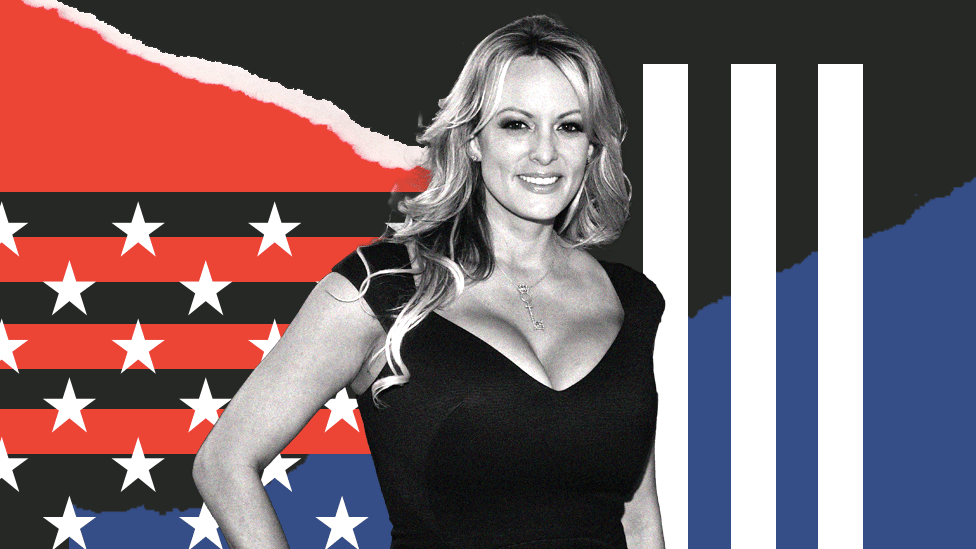
- Published5 April 2023
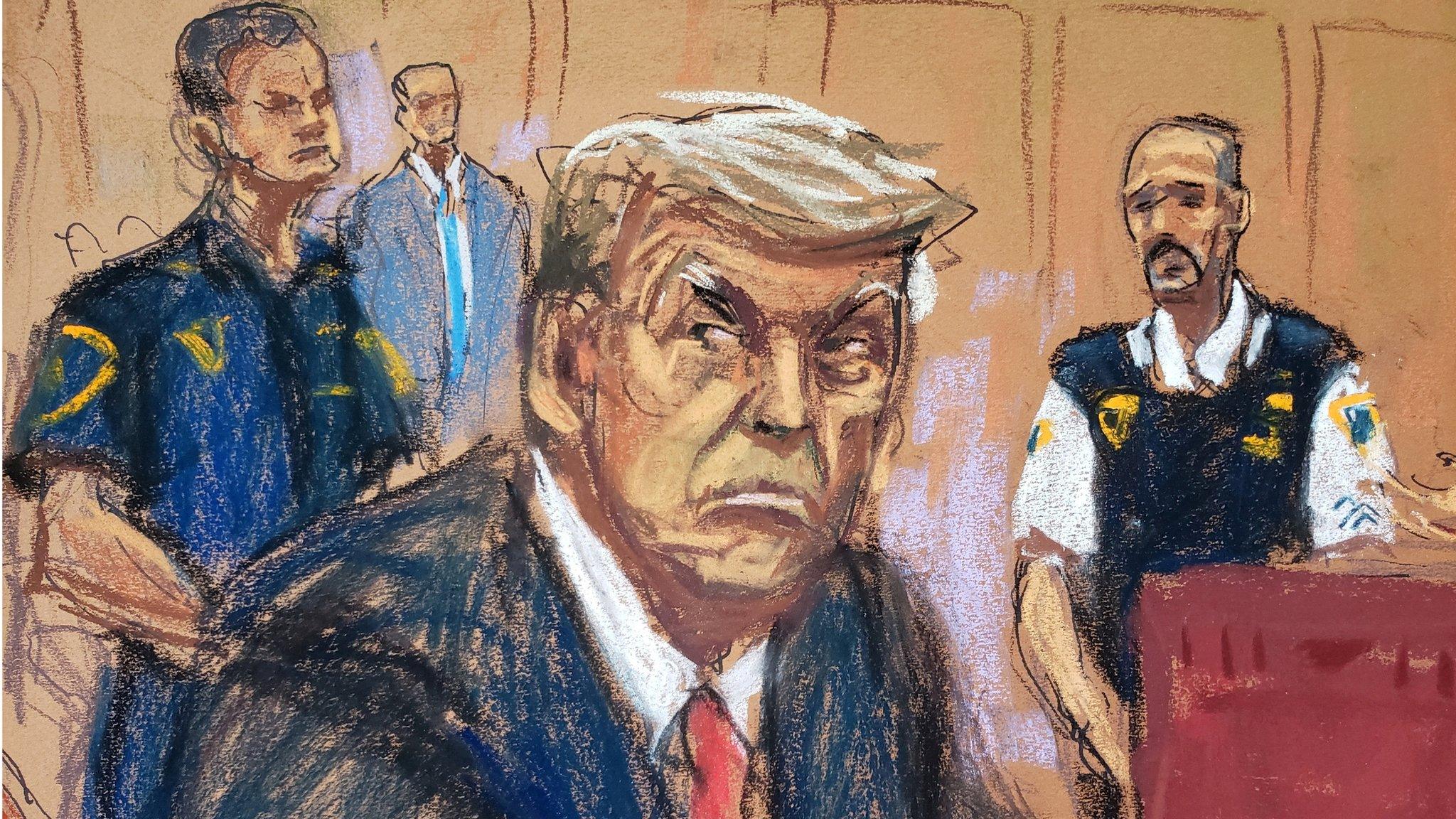
- Published31 May 2024
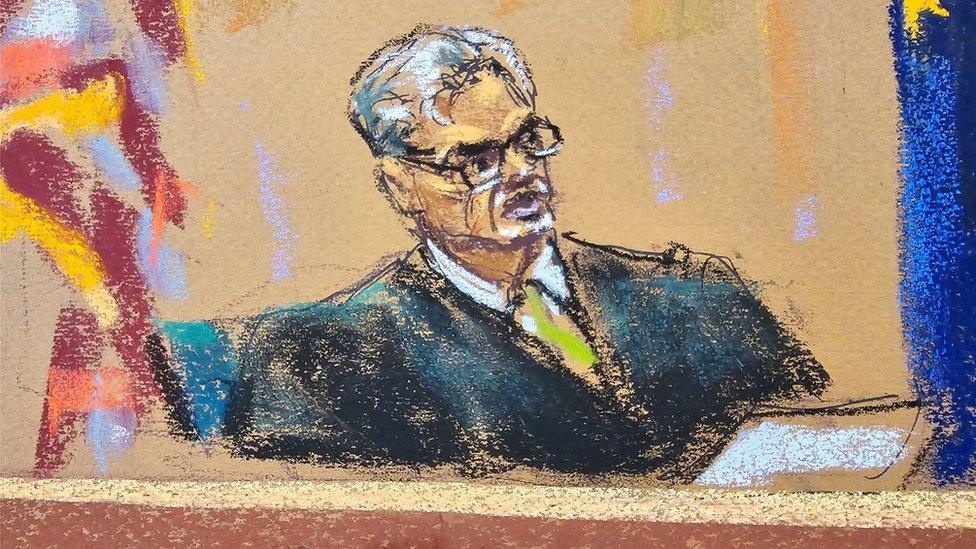
- Published31 March 2023
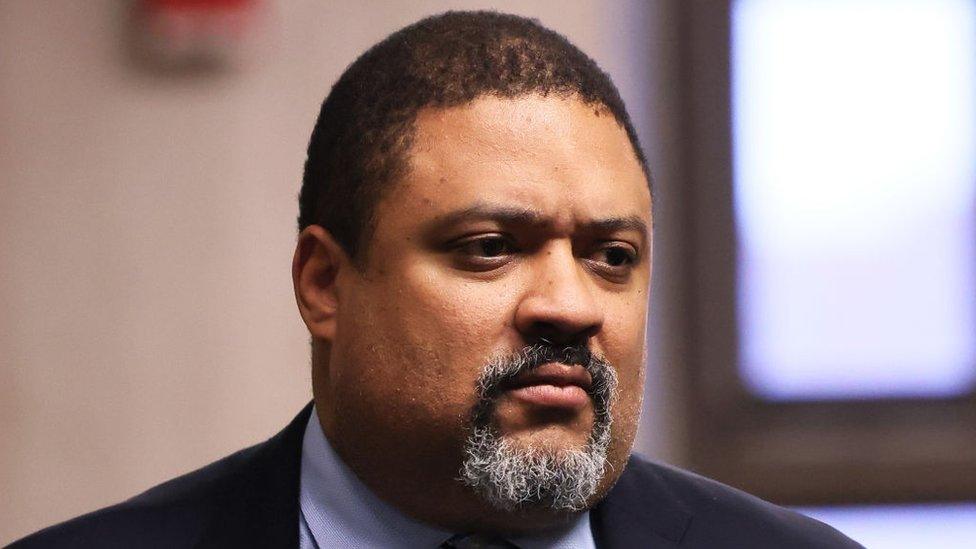
- Published28 August 2024
